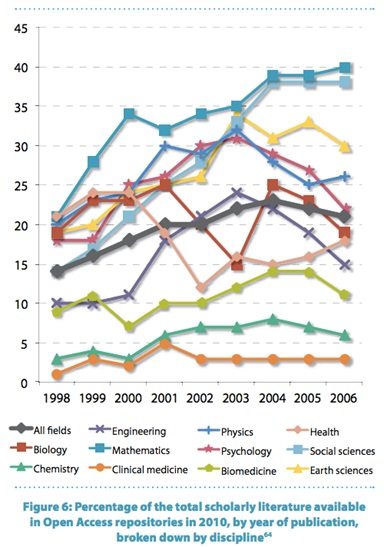
November 21, 2014;BoingBoing
Last week, in a radical move that places it ahead of the pack, the Bill and Melinda Gates Foundation announced that all research they fund must, as of January 2017, meet the following guidelines:
- Publications are Discoverable and Accessible Online. Publications will be deposited in a specified repository(s) with proper tagging of metadata.
- Publication will be on “Open Access” Terms. All publications shall be published under the Creative Commons Attribution 4.0 Generic License (CC BY 4.0) or an equivalent license. This will permit all users of the publication to copy and redistribute the material in any medium or format and transform and build upon the material, including for any purpose (including commercial) without further permission or fees being required.
- Foundation will Pay Necessary Fees. The foundation would pay reasonable fees required by a publisher to effect publication on these terms.
- Publications will be Accessible and Open Immediately. All publications shall be available immediately upon their publication, without any embargo period. An embargo period is the period during which the publisher will require a subscription or the payment of a fee to gain access to the publication. We are, however, providing a transition period of up to two years from the effective date of the policy (or until January 1, 2017). During the transition period, the foundation will allow publications in journals that provide up to a 12-month embargo period.
- Data Underlying Published Research Results will be Accessible and Open Immediately. The foundation will require that data underlying the published research results be immediately accessible and open. This, too, is subject to the transition period and a 12-month embargo may be applied.
By contrast, the National Institutes for Health require open access but only a year after publication.
Sign up for our free newsletters
Subscribe to NPQ's newsletters to have our top stories delivered directly to your inbox.
By signing up, you agree to our privacy policy and terms of use, and to receive messages from NPQ and our partners.
The Gates Foundation spends approximately $900 million a year on research. It’s reported as having funded 2,802 research articles in 2012 and 2013, and according to Amy Enright, speaking for the foundation, 30 percent of them were published in open access journals. She says that says the foundation will monitor compliance with the requirement: “We believe that the foundation’s Open Access Policy is in alignment with current practice and trends in research funded in the public interest. Hence, we expect that the policy will be readily understood, adopted and complied with by the researchers we fund.”
Many scientific publishers have policies that are currently in conflict with the requirement, so those journals will either have to change those policies or stop publishing the studies in question. Additionally, some scholars are not open to sharing the data underlying their research. The requirement is being seen as a strong blow for “open access,” which, as can be seen in the chart below from the Policy Guidelines for the Development and Promotion of Open Access at UNESCO, is growing in use.

—Ruth McCambridge











